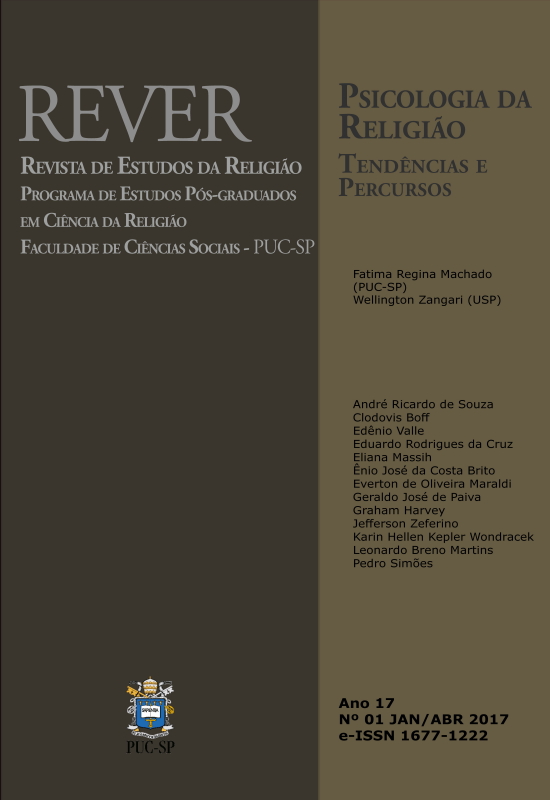Contributions of Evolutionary Psychology and Neurosciences to the Understanding of Religious Beliefs and Experiences
DOI:
https://doi.org/10.23925/1677-1222.2017vol17i1a4Keywords:
Evolutionary Psychology, Cognitive Science of Religion, Neuroscience of Belief, Neuromodulation, Science of ReligionAbstract
Religious beliefs and experiences are increasingly being recognized by contemporary scientific research as natural phenomena, subjected to the same evolutionary, cognitive and neural mechanisms that characterize other forms of human behaviour. From an evolutionary perspective, such beliefs and experiences became possible only by the development and the concatenation of various structures in the brain, given the specific requirements of the biological adaptation process. The cognitive science of religion has also been indicating how religious experience could be explained on the basis of fundamental perceptive, linguistic and cognitive processes. These approaches seem all to converge to a comprehensive understanding of the natural origins of religion, although sometimes they diverge in terms of details and perspectives. This paper presents a review of the contributions in this research area, and discusses their empirical foundations and theoretical and methodological limitations. The authors review the cognitive functions presumed to be in the genesis of religious rituals and beliefs in supernatural agents and phenomena. The paper also presents the literature on the neurophysiology of religious beliefs and experiences, including recent investigations concerning the neuroestimulation/neuromodulation of beliefs. The authors discuss the implications of these studies to the broader field of the science of religion.
Downloads
Published
How to Cite
Issue
Section
License
Authors who publish in this journal agree with the following terms:- Authors retain copyright, but grant the journal the right of first publication, with the work simultaneously licensed under the Creative Commons BY-NC License.
- Authors are authorized to assume additional contracts separately, for non-exclusive distribution of the work published in this journal (e.g., publishing in an institutional repository or as a book chapter), as long as with acknowledgment of authorship and first publication in this journal.


